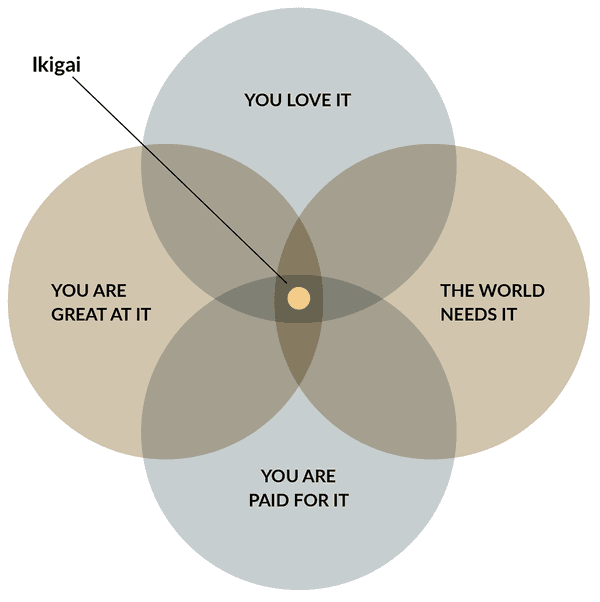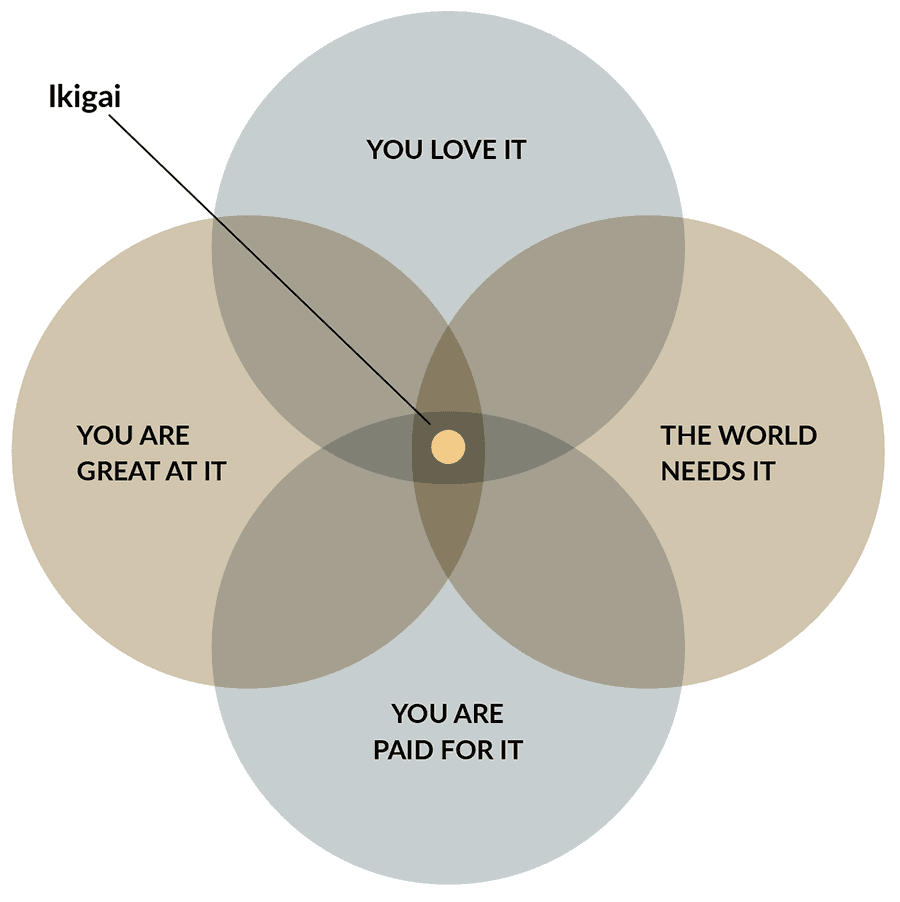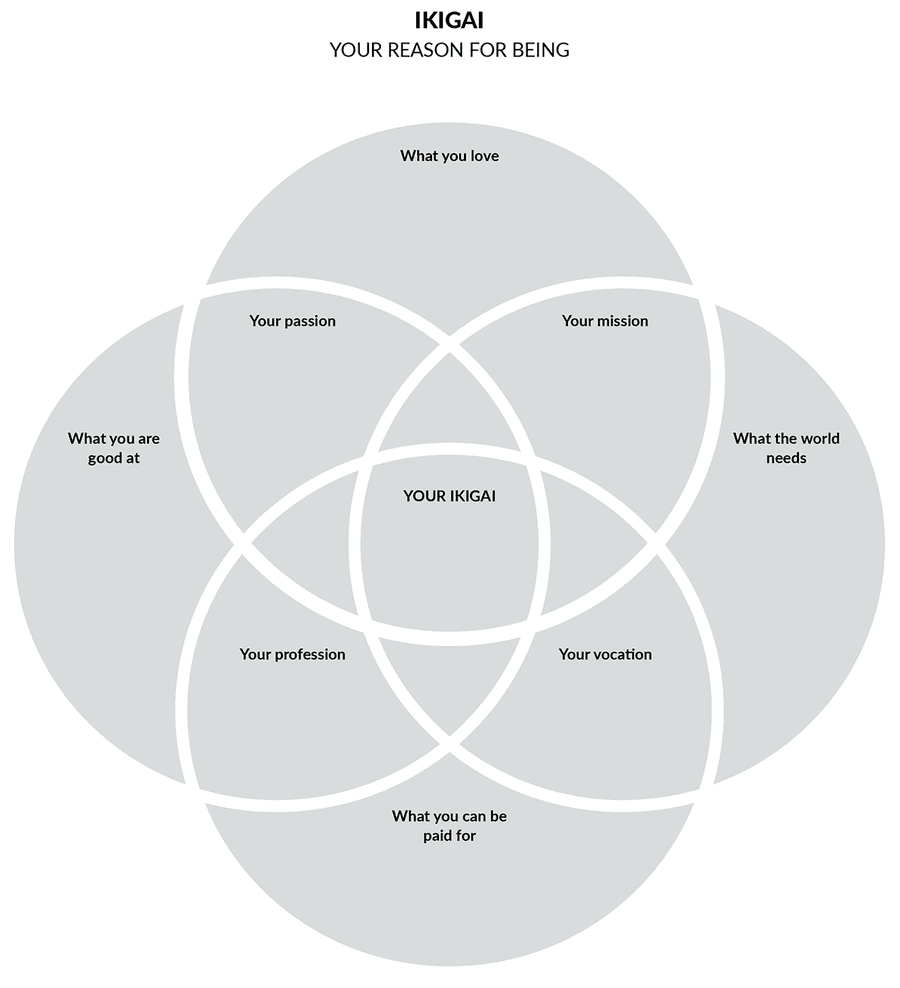The Philosophy of Ikigai: 3 Examples About Finding Purpose
Curated from: positivepsychology.com
Ideas, facts & insights covering these topics:
7 ideas
·15.6K reads
114
Explore the World's Best Ideas
Join today and uncover 100+ curated journeys from 50+ topics. Unlock access to our mobile app with extensive features.
Meaning Of Ikigai
Ikigai (ee-key-guy) is a Japanese concept that combines the terms iki , meaning “alive” or “life,” and gai , meaning “benefit” or “worth.”
282
3.93K reads
What Is the Japanese Concept Ikigai?
The concept of ikigai is said to have evolved from the basic health and wellness principles of traditional Japanese medicine. This medical tradition holds that physical wellbeing is affected by one’s mental–emotional health and sense of purpose in life .
Japanese psychologist Michiko Kumano (2017) has said that ikigai is a state of wellbeing that arises from devotion to activities one enjoys, which also brings a sense of fulfillment.
261
2.67K reads
The Ikigai Diagram: A Philosophical Perspective
Adapted from PositivePsychology.com’s Toolkit, 2020
As this diagram shows, ikigai holds the central position and involves four major spheres of interest and how they might overlap in one’s life. In trying to determine your own personal ikigai with the help of such a diagram, you would fill in each sphere with its appropriate content based on your own experiences, self-knowledge, and understanding of the world.
Some of the content that would go into these spheres might come easily to you. Other content might take more time and self-reflection.
280
2.23K reads
You Love It
This sphere includes what we do or experience that brings us the most joy in life and makes us feel most alive and fulfilled. What we love in this sense might be sailing, writing poetry, rock climbing, singing in a rock band, reading historical novels, spending leisure time with friends, etc.
What is important is that we allow ourselves to think deeply about what we love, without any concern for whether we are good at it, whether the world needs it, or if we can get paid for doing it.
265
1.81K reads
You Are Great at It
This sphere includes anything you are particularly good at, such as skills you’ve learned, hobbies you’ve pursued, talents you’ve shown since an early age, etc. What you are good at might be, for example, playing the piano, being empathic, public speaking, sports, brain surgery, or painting portraits.
This sphere encompasses talents or capabilities, whether or not you are passionate about them, whether the world needs them, or if you can get paid for them.
255
1.67K reads
The World Needs It
The “world” here might be humanity as a whole, a small community you are in touch with, or anything in between. What the world needs might be based on your impressions or needs expressed by others. The world’s needs might include skilled nursing, clean water, home heating, election day volunteers, or improved police training.
This domain of ikigai connects most explicitly with other people and doing good for them, beyond one’s own needs.
258
1.59K reads
You Are Paid for It
This dimension of the diagram also refers to the world or society at large, in that it involves what someone else is willing to pay you for or “what the market will bear.” You might be passionate about writing poetry or very good at rock climbing, but this does not necessarily mean you can get paid for it.
Whether you can get paid for your passions or talents depends on factors such as the state of the economy, whether your passions/talents are in demand, etc.
It is further noted that according to this diagram:
272
1.72K reads
IDEAS CURATED BY
I'm a student I will post what I learnt on the day so, follow my lead. Follow me on Instagram: Light._.kiran
CURATOR'S NOTE
Ikigai is a book which will give you a life lessons and also tell you tips to earn money and focus on it!
“
Kiran Munnolli's ideas are part of this journey:
Learn more about personaldevelopment with this collection
The impact of opportunity cost on personal and professional life
Evaluating the benefits and drawbacks of different choices
Understanding the concept of opportunity cost
Related collections
Similar ideas
Read & Learn
20x Faster
without
deepstash
with
deepstash
with
deepstash
Personalized microlearning
—
100+ Learning Journeys
—
Access to 200,000+ ideas
—
Access to the mobile app
—
Unlimited idea saving
—
—
Unlimited history
—
—
Unlimited listening to ideas
—
—
Downloading & offline access
—
—
Supercharge your mind with one idea per day
Enter your email and spend 1 minute every day to learn something new.
I agree to receive email updates


